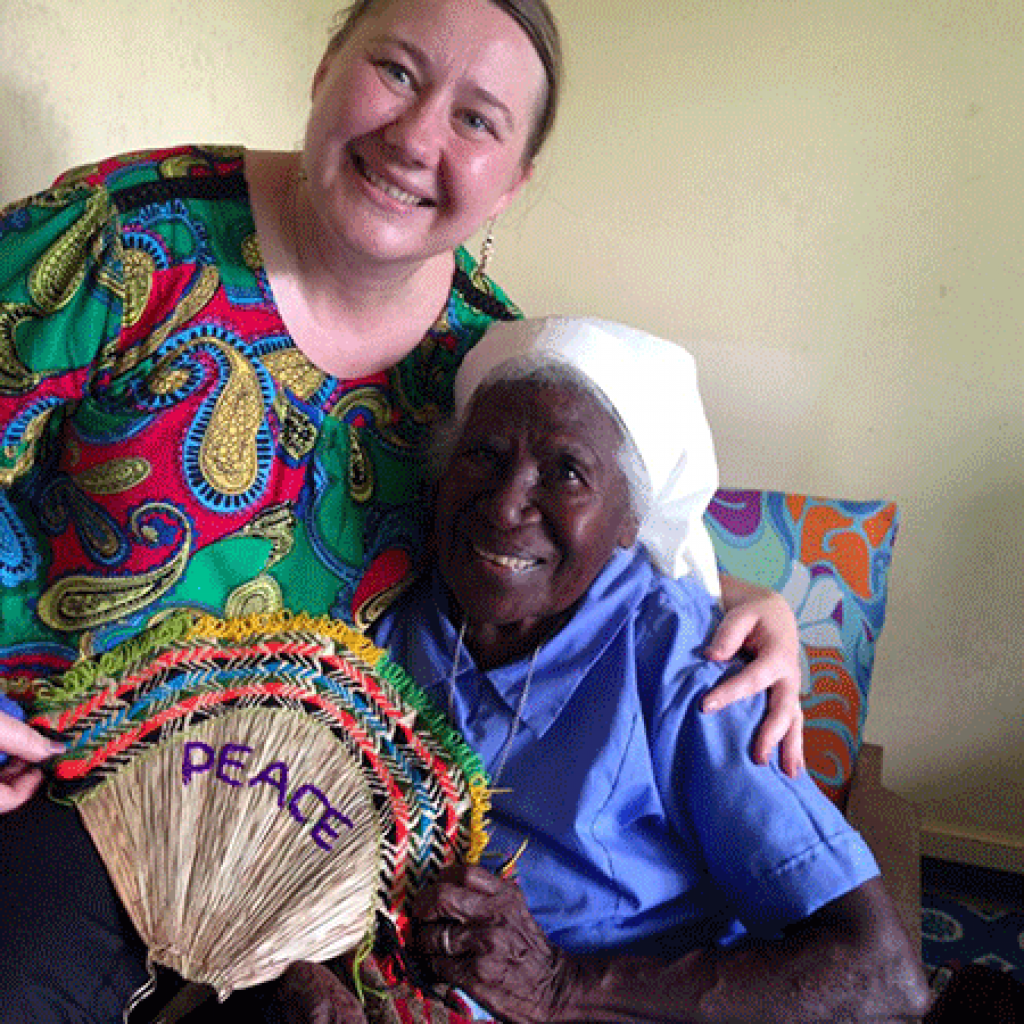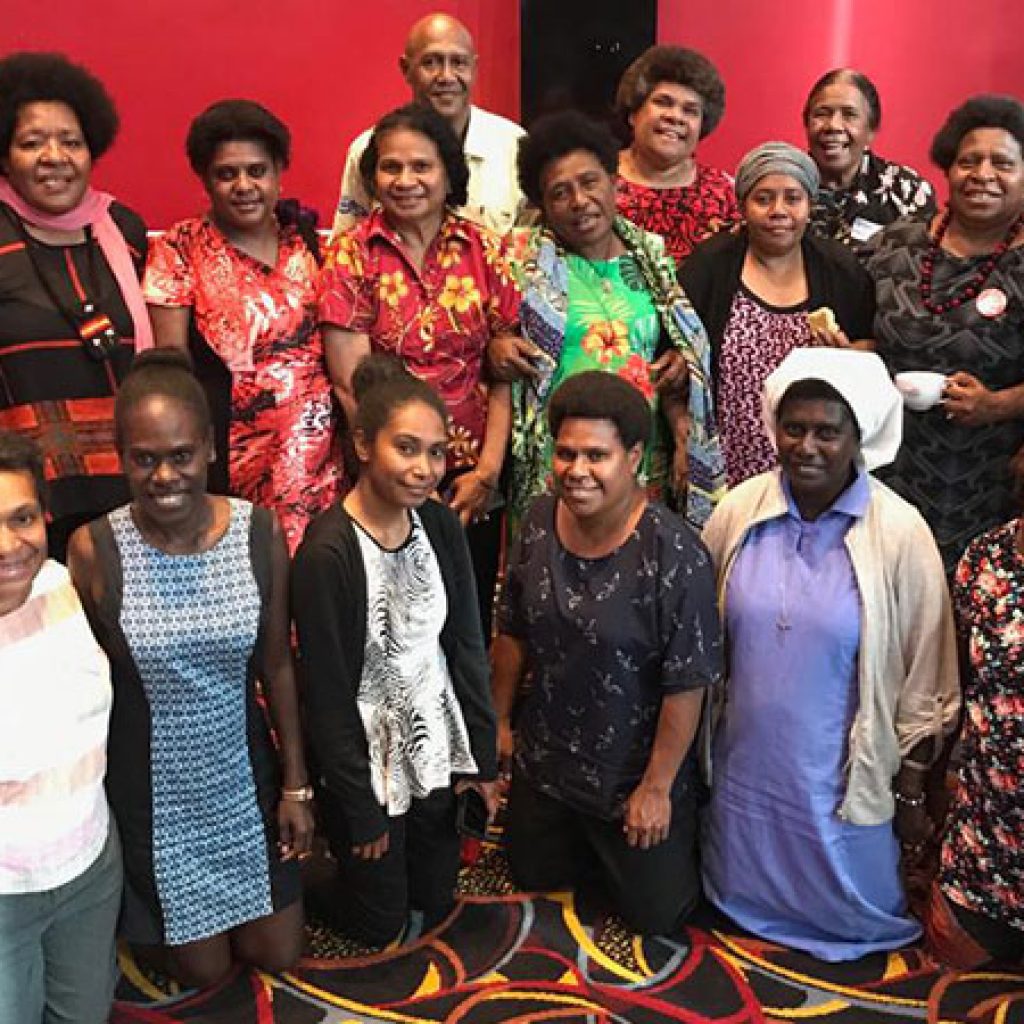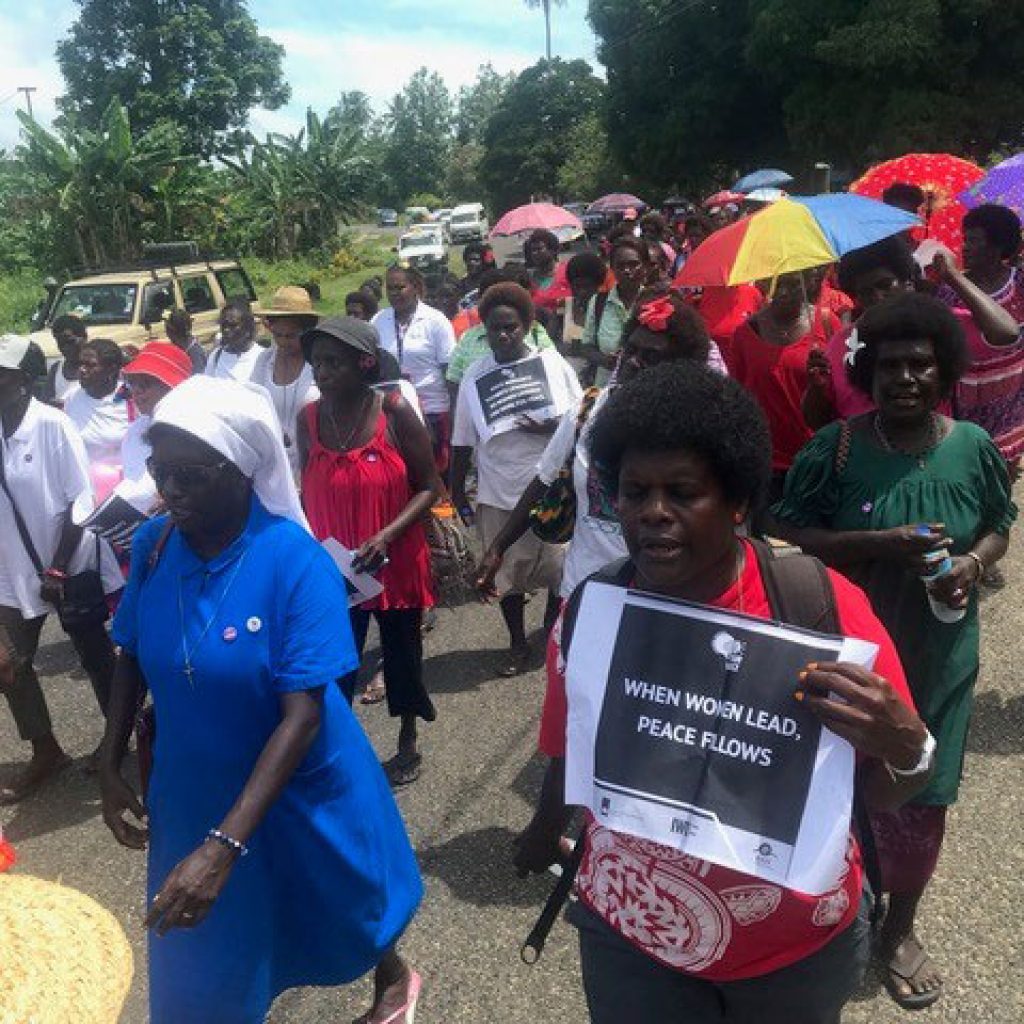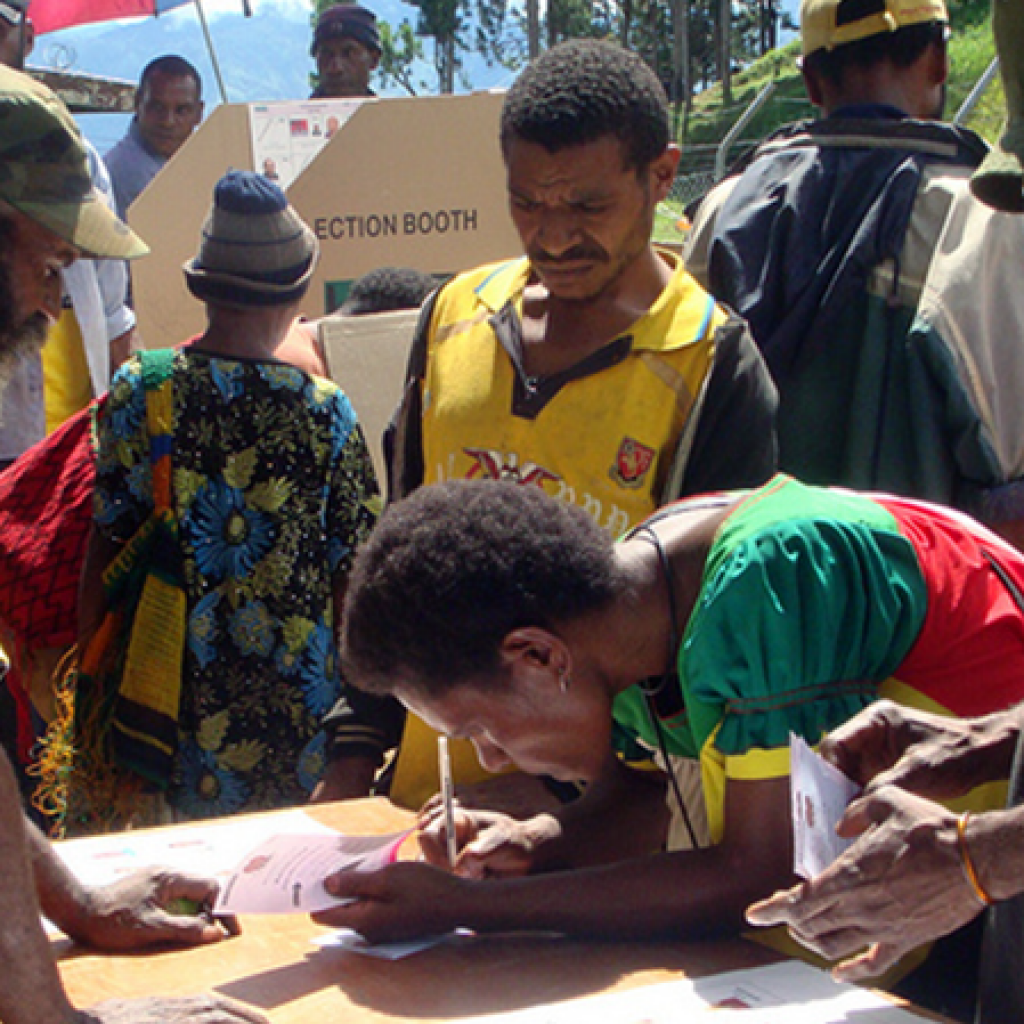
Why were zero women elected to Papua New Guinea’s Parliament?
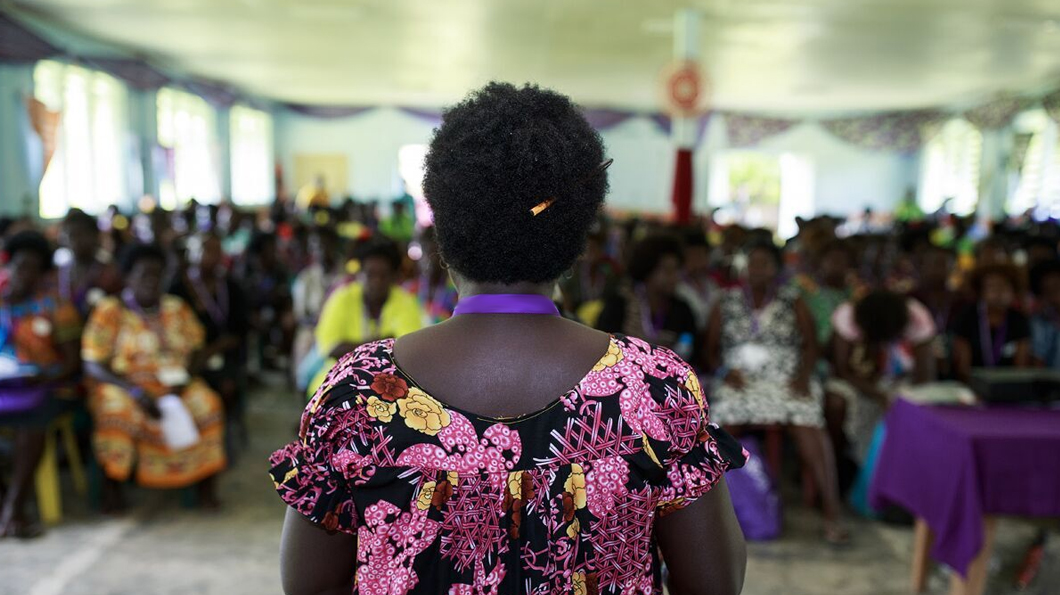
This June, Papua New Guinea held a national election. With national elections scheduled every five years, the election was only the 9th to take place since the nation achieved independence after 70 years of Australian rule. Missing writs, violence and names omitted from the ballot have marred the recent election process – a process which many had hoped would be fair and peaceful. More than a month after Papua New Guinea went to the polls, votes were still being counted in the Southern Highlands, where at least five people were killed in violence fuelled by tensions related to the election.
The women of Papua New Guinea are brave, resilient and dedicated to democracy. And they’re advocating for change in the face of violence, threats and deeply ingrained barriers. We’ve worked closely with our partner organisations throughout the election process to support women’s access to fair and democratic elections through voter education awareness programs and leadership training for women candidates.
Since independence, only seven women have ever been elected to Papua New Guinea’s Parliament. While we’ve seen some progress in voter attitudes towards women leading, not a single woman was elected this year, despite record numbers of women running for seats. Of the 167 women who stood, none were voted in.
So what exactly happened in this year’s election, and what were the experiences of women running and voting?
What was the process?
Papua New Guinea’s Parliament is made up of 111 seats, each of which represent a district in Papua New Guinea. After the announcement of the election dates in February, candidate nominations opened on the 20th of April and closed only a week later. Prior to the voting, candidates in each districts spent months campaigning to be elected in their province – campaigning that according to our partner organisations, often involved bribery, buying votes and threats between candidates.
This year’s election had the additional confusion of a change to the system of voting. First Past the Post voting (also known as simple Majority Voting), where the candidate who receives the highest number of votes is elected, has always been the norm in Papua New Guinea. This year’s election employed Limited Preferential Voting, where voters are given the choice of at least three candidates and number them by preference.
This added an additional layer of complexity to the process for groups with low literacy levels. This is particularly so for Bougainville, where as a result of a devastating 10 year civil war there is a substantial number of the population between 35-45 years old who have had very limited access to formal education.
Voting in the election began on the 24th of June, and was expected to close on the 8th of July. Once votes were collected, a writ with the winning candidate was sent to the electoral committee. But with 3,332 candidates, poor infrastructure, treacherous terrain and logistical challenges, voting took much longer than anticipated.
With so many islands evolving in isolation for thousands of years, Papua New Guinea’s lands range from beaches and wild jungles to cities and rural farming towns. The islands are also incredibly hard to connect – poor roads, intermittent telecommunications and limited transportation options are just a few of the barriers. Some regions are incredibly hard to reach, with ballot boxes transported by boat via rough waters.
In early August, despite many writs still missing, and confusion when two people showing up to claim the same seat, Peter O’Neill was reappointed Prime Minister. Parliament sat for the first time on the 2nd of August with what is thought to be the largest number of undeclared seats in the history of Papua New Guinea’s Parliament.
Did corruption play a role?
It wasn’t just logistical barriers that made a swift election impossible. Allegations of corruption were a common theme of the election, despite a 12-member Commonwealth Observer Group overseeing the process. In Port Moresby, votes were delayed due to polling booth workers not receiving their allowances – while local media reported the city’s election manager was arrested for carrying $80,000.
Another huge barrier to a fair and equal vote was the sheer number of names left off the election roll. Thousands of students who had protested the previous Prime Minister, Peter O’Neill (who won a second term), claimed their names were omitted from the roll – as did former Prime Minister Sir Mekere Morauta.
The Prime Minister denied allegations of corruption – but intentional or not, the omissions excluded many citizens from exercising their equal right to vote on who should run their country.
Corruption at a more local level was also common. With intimidation and violence used by some candidates and their supporters to quell debate, there were very few avenues to safely discuss candidates and policies that were important to them.
“This election is really bad, not like previous one. Previous ones it was a bit safer, you could feel that the environment was conducive for you to walk around, talk, discuss. This election you cannot even say the name of the candidate you want because you might be heard or abused when you call their name,” Bec said.
What were the specific barriers to equality faced by women?
Along with these logistical and corruption issues, women faced further specific barriers, both in casting their vote and running for seats.
IWDA partner organisations Bougainville Women’s Federation and Wide Bay Conservation Association both ran voter-awareness training in the lead-up to the elections. The training covered how to vote, the importance of voting and electing quality leaders, and the laws that govern the election. Both partners reported that before the training, many women felt they had to vote in line with their husband’s or families’ wishes, either because they didn’t have an understanding of what a difference their vote could make, or because they were forced.
According to Bec*, who works with IWDA partner Eastern Highlands Family Voice, this year’s election was particularly bad for women. In some areas, women didn’t even get to say who they wanted to vote for. Many were coerced by the young men enforcers, who lingered around the polling booths, with the unspoken threat of violence if they did not vote a certain way.
“When the women go to pick up the form in some communities, they pick up the form and it’s already marked. First, second and only the third box is empty. So they take the paper, they go behind the box, put the mark on third one, fold it and they go throw it. They don’t have a say and most of it was done for them. Some were just going there to have their hands painted,” Bec said.
Illiteracy was another barrier; while rates of literacy in young women are beginning to catch up to those of young men, overall women are still significantly less literate than men. Illiteracy doesn’t just prevent a woman from casting a fair and free vote, it can stop them from checking if they’re even eligible. With the change to the system of voting, voter-awareness training for these groups played an important role in increasing women’s confidence to vote.
The process of checking your enrolment details technically rests with the district government, but our partners tell us that this is inconsistent. Sam* works for Bougainville Women’s Federation, which is based in Buka in the Autonomous Region of Bougainville. She was still only registered to vote in her home town of South Bougainville, despite having moved to North Bougainville over 6 months ago. When she approached the polling booth, her name was nowhere to be seem. She was told to write her name on a list and cast her vote, she was told the electoral roll would be updated with her details but she isn’t confident it was legal.
This means she, like many working in Bougainville’s central business district, are faced with the choice of an uncertain vote, or a costly and time consuming trip back to their home towns. Often the latter is not an option as many women can’t afford to leave behind family and household responsibilities or take time away from work.
If women choose to get married outside of their hometown, as many women do, they more often than not leave their own social networks and move to their partner’s home, where solidarity and support are even harder to come by, making the process of travelling back home to vote even harder. For many, it’s not worth it.
What were the experiences of women running for election?
Gender inequality is deeply entrenched in Papua New Guinea. Women who do run for election are often seen as straying from the place Papua New Guinea’s patriarchal society designates for them – as a mother, a caregiver and subsistence farmer.
Bec says that the reasons women are excluded from leadership are still largely rooted in culture and religion.
“In our cultural context women are supposed to be in the background, in a supporting role, they must not have a voice and stand in the public and talk like a man. They have to implement everything the men say,” she said.
The wantok system of community grouping that exists across much of the nation means wantok members hold primary allegiance to each other, and act to support those in their communities who cannot support themselves. This has its benefits; but on the flip side, customary law is often prejudiced against women, and most elected community leaders are older men, typically with wealth and power.
With cash playing a huge role in campaigning, even women who do run for election are at an immediate disadvantage – without the money to cover campaigning, gifts and often bribery, they stand little chance. Further to this, women are unable to move freely throughout their districts and provinces without fear of their safety. Transport and fuel costs can be prohibitive, travelling through rival clan and wantok territories can bring uninvited violence and backlash, both verbal and physical.
Women who seek to run for election, or even just support women candidates, are actively discouraged from doing so – to the point that some women who ran for elections, and those that supported them, were arrested, assaulted and threatened.
Were people able to safely support women candidates?
IWDA partner Voice for Change and their network of Women’s Human Rights Defenders spent time in the lead-up to the elections and throughout the campaigns advocating for a free and fair vote, with a particular emphasis on encouraging people to consider women candidates. One staff member had been speaking out against a candidate in her village who was trying to force people to vote for him, often using threats to do so.
After voting, he mobilised his tribesmen and they destroyed her home. They destroyed all the food gardens, broke the door and slaughtered all the livestock – livestock that the woman relied on to support her family. Voice for Change helped her relocate, but a week later, at 1am, men surrounded the house, threatening to shoot her and burn the house to the ground.
Another Women’s Human Rights Defender strongly supported a woman candidate in her village, despite dealing with verbal and physical abuse from her husband and other men in her community who felt she was passing on a bad message to their wives. She ended up abandoned by her husband, brutally assaulted, and forced out of her home.
Kate of Voice for Change says that people do want to elect women – but barriers to women leading were still huge in Papua New Guinea.
“Some [women] were not even able to make it to the polling place because there were a lot of threats, a lot of buying and bribery of votes, and it was difficult. People do want to vote for them, but because of the tribal system, the clan system, they were using the young men aggressively to control the vote. So they didn’t allow most of the women, and even some men, to vote fairly,’ Kate said.
Perceptions of women as leaders need to change
Put simply, women still aren’t seen as leaders in Papua New Guinea – from a young age, they’re actively discouraged from speaking out in their homes, their wantoks, and their wider communities.
This perception of women as leaders doesn’t exist in isolation – it’s mirrored in high rates of violence against women, economic disadvantage, and the fact that women are overwhelmingly responsible for unpaid care, limiting their access to education, health and participating in public and political life.
Our partners are working to change this. And they are making progress. After their voter education training, Wide Bay Conservation Association, reported that women felt safe to vote for the first time ever as a result of the training, which is a huge testament to the commitment and resilience of women’s rights organisations in Papua New Guinea.
In the face of financial challenges, cultural barriers and threats and experiences of violence, women are still running for election in record numbers and turning out to vote.
Organisations like Wide Bay Conservation Association, Bougainville Women’s Federation, Voice for Change and Eastern Highlands Family Voice are taking steps to improve women’s awareness around voting. Their programs also aim to change attitudes around women’s ability to lead.
A forum facilitated by the United Nations Development Program recently brought together Papua New Guineans from all sectors, including government officials, civil society, the private sector, academia and the media, as well as interested citizens, to discuss the recent elections and the issues affecting women’s participation in elections. The forum called on the Government to renew efforts to implement temporary special measures, commission and independent review into the election, and work with local stakeholders to enhance women’s political participation, among other things.
Women need to be made aware of their rights, and be given a right to voice their opinions issues that will directly affect them in their communities. In the face of the recent election, it is more important than ever to build networks at a local and political level to support women’s rights to participate in Papua New Guinea’s future.
